Yesterday, UWA held a Faith Fair. You could argue that any fair where you don’t know who assembled the Ferris wheel is a faith fair, but this was a real Faith Fair, and the UWA Atheist and Skeptic Society was invited. What’s a university doing promoting faith, anyway? We’re supposed to be helping people learn to think better, not worse. But we wanted to provide a balance, and I think it’s cool that we were invited, even though we’re not a religion and have no faith.
Our contribution was ‘Ask an Atheist”, which consisted of a bunch of us sitting at a table, waiting for questions. In the first few hours, one guy asked us about the Illuminati, and another couple asked us directions to some other building on campus. Pleasingly, another student signed up with us. That was about it.
Pretty soon, the UWA Christian Union set up their own table next to us, and together we all sat, not being asked questions, and being completely ignored by the studentry.
Here’s a picture of all of us.
Notice the extremely large zone of no people around us.
In short, the Faith Fair was a total bust, and I couldn’t be happier. Students at UWA don’t give a fart for faith, and that’s the way I like it.
There was one interesting bit though, where we asked Scott, the president of Christian Union, about what happens to people who died before Jesus. I know different religions answer this in different ways — and the Mormons have an innovative, if resource-intensive, solution — but I wanted to hear his response.
I think Scott answered this in a thoughtful and careful way. He named a few different ideas people have had over the years — like, the Atonement applies to them retroactively, or if they were ‘good’ they get a pass, and so on — but in the end, he said plainly and honestly that they didn’t know.
“How would you find out, if you wanted to?” I asked.
The only way he could come up with was by… interpreting scripture! Of course, that approach has worked wonders over the years at providing clear, unambiguous, and well-agreed upon answers to great religious questions.
The whole conversation made me feel quite impatient and irked with religion. There’s a question there, and everyone agrees it’s a good question that really should have an answer. But there’s no agreed-upon answer, and even worse, there’s no agreed-upon way of getting an answer.
Wouldn’t that drive you mad? What if we had to work that way in the sciences? Sure there’s a lot we don’t know, but we have an established way of getting the kind of answers that people can agree on. If we had a lot of scientists from different countries and different backgrounds, and we had some scientific question that we wanted to find out about, we may not have an answer right away, but we could at least come up with a research program to work towards an answer.
With religion, you can’t even start. All the answers come from a god who never speaks directly, but has (allegedly) left a lot of mutually incompatible, multiply contradicting (and self-contradicting) holy books whose contents need to be massaged into a comprehensible answer. Even then, the various practitioners won’t agree. You start hitting insurmountable limits just about as soon as you start asking questions.
The religious metaphysical approach is a recipe for stuckness.
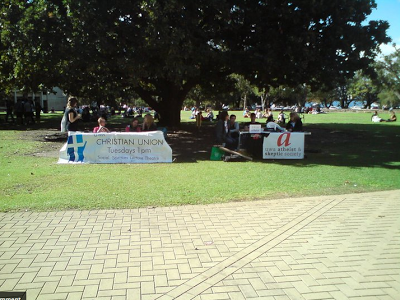

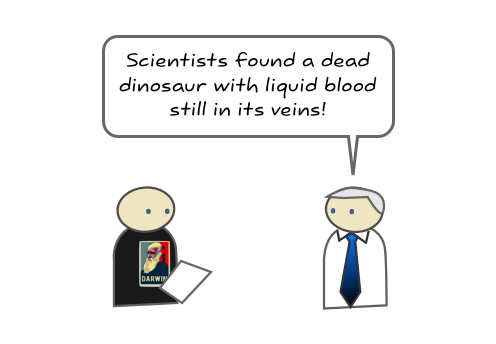


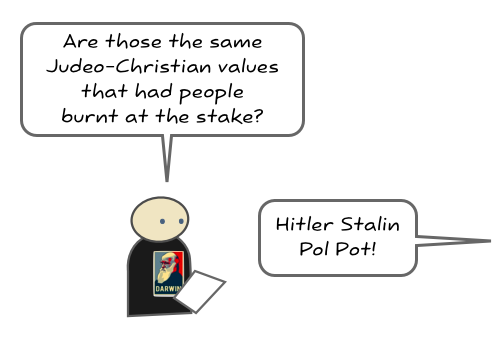
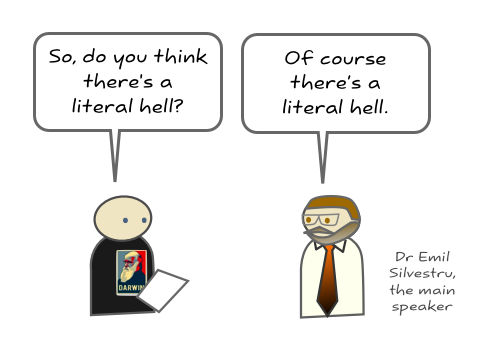
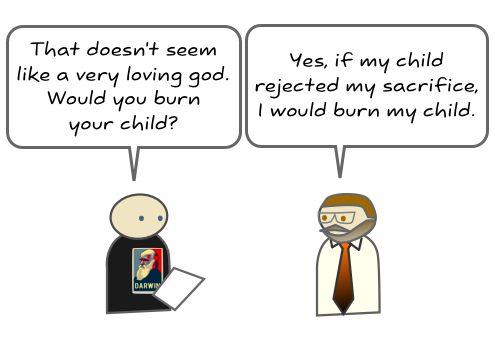
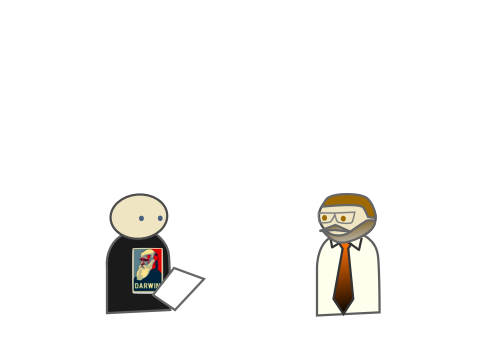
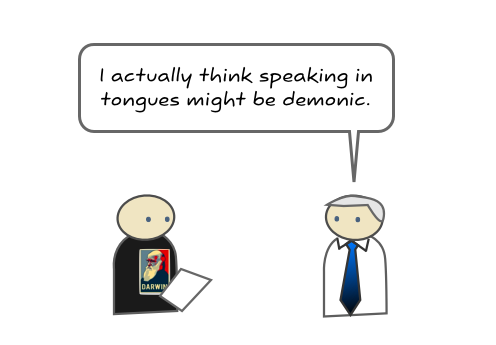

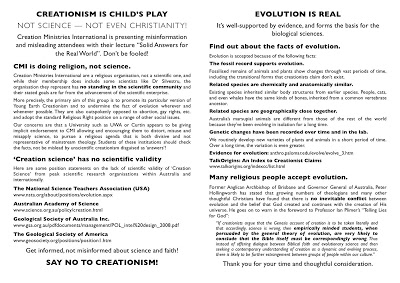

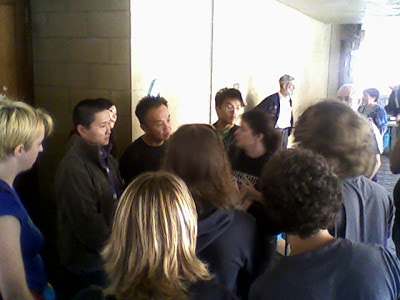


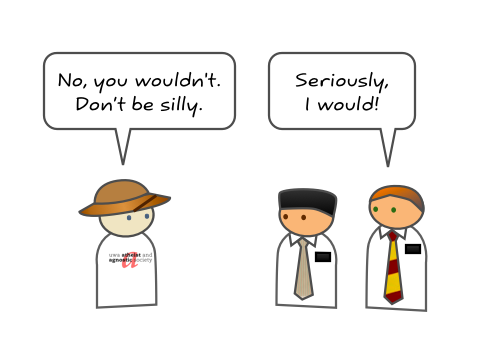

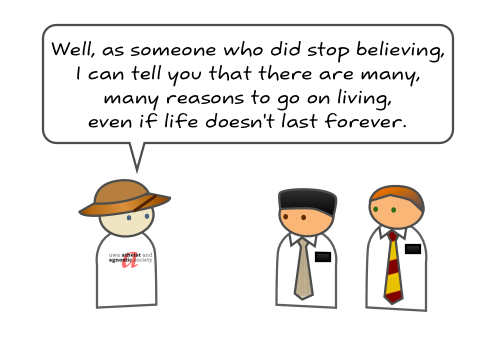


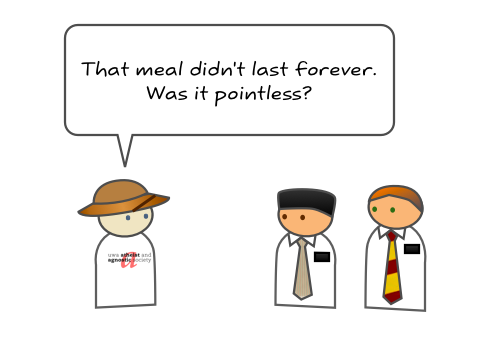

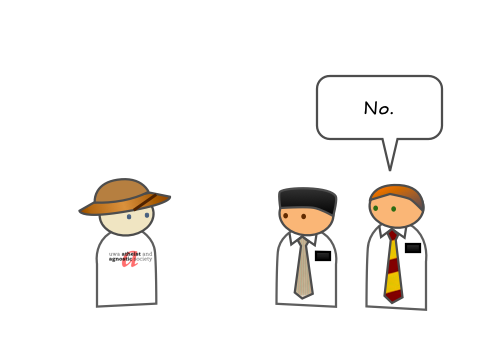







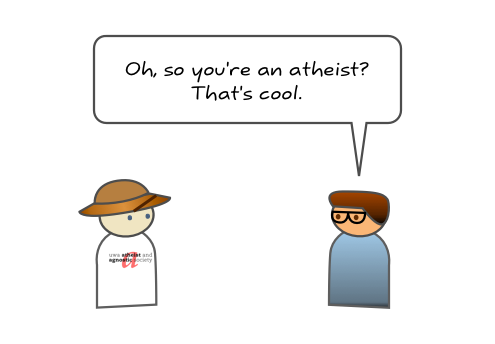

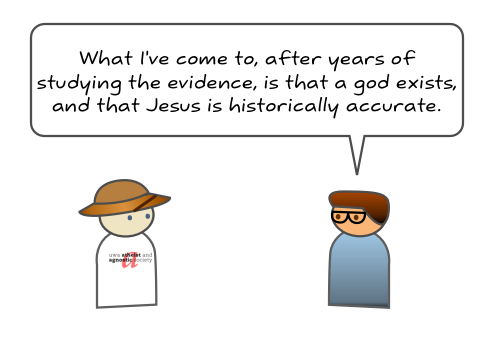



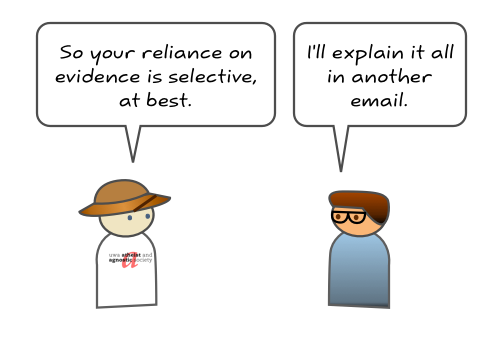
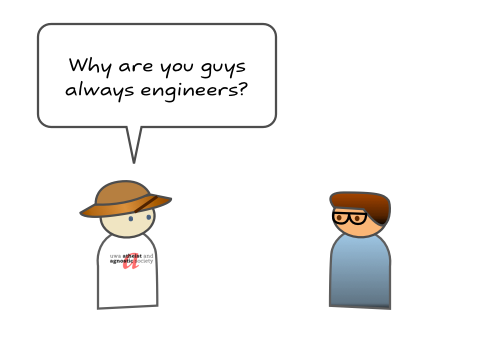
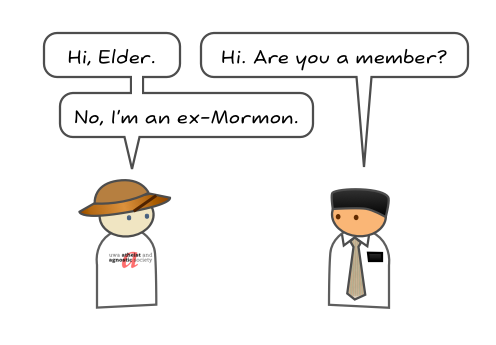


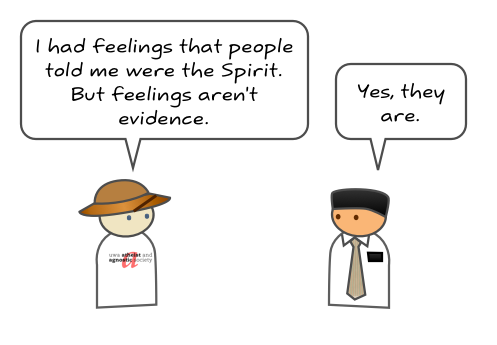
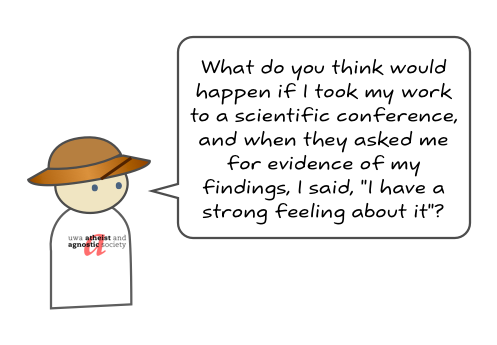



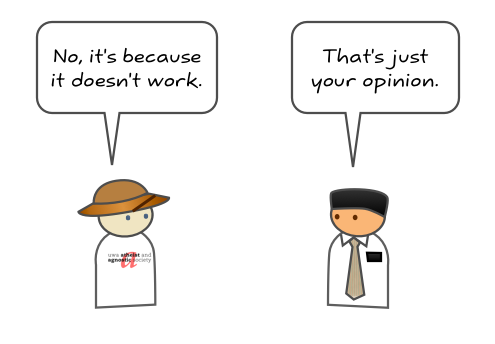
Recent Comments